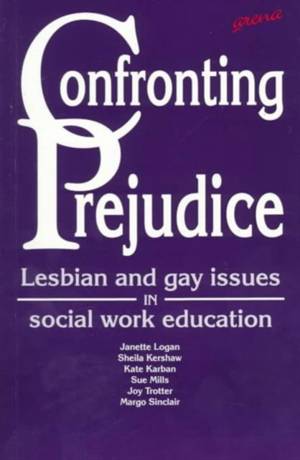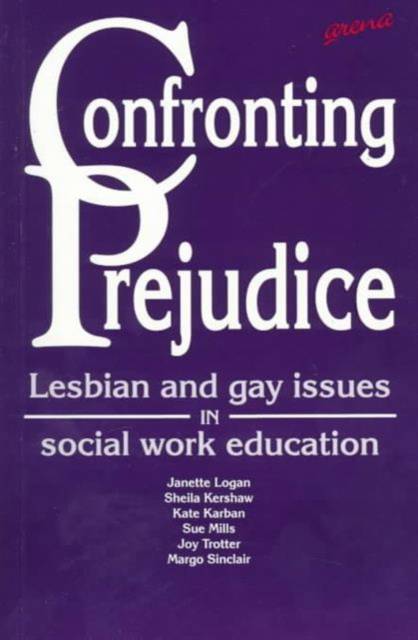
- Afhalen na 1 uur in een winkel met voorraad
- Gratis thuislevering in België vanaf € 30
- Ruim aanbod met 7 miljoen producten
- Afhalen na 1 uur in een winkel met voorraad
- Gratis thuislevering in België vanaf € 30
- Ruim aanbod met 7 miljoen producten
Zoeken
Confronting Prejudice
Lesbian and Gay Issues in Social Work Education
Janette Logan, Sheila Kershaw, Kate Karban, Sue Mills, Joy Trotter, Margo Sinclair
€ 60,95
+ 121 punten
Omschrijving
This book brings lesbian and gay issues to the centre of the debate on anti-oppressive practice. It is an accessible and practical guide to the subject for all involved in student learning, aiming to provide practice teachers and educators with tools to help students develop their understanding of the effects of heterosexism as well as providing strategies for positive practice. Part 1 considers: [ the social background, raising important issues about the ways in which lesbians and gay men are marginalised in society and the subsequent reflection in social work education and practice; [ the legal framework within which social workers and probation officers operate, drawing attention to some of the tensions and dilemmas facing practitioners attempting to develop anti-discriminatory and anti-oppressive practice; [ a framework within which to develop non-homophobic and non-heterosexist practice within the Diploma in Social Work, raising important issues which need to be addressed both within the academic institutions and the practice learning environment; [ how to facilitate students' learning in relation to anti-discriminatory and anti-oppressive practice with lesbian and gay service users; [ the assessment of students' competence within the academic and practice curriculum; [ a model of good practice in working with lesbians and gay men, offering practical suggestions which can be incorporated into existing policies and procedures. Part 2 provides practical teaching and training materials including how to organise the training session, exercises and notes for trainers. these can be adapted to reflect individual or group needs, within the practice learning or academic environment.
Specificaties
Betrokkenen
- Auteur(s):
- Uitgeverij:
Inhoud
- Aantal bladzijden:
- 136
- Taal:
- Engels
- Reeks:
Eigenschappen
- Productcode (EAN):
- 9781857423600
- Verschijningsdatum:
- 14/11/1996
- Uitvoering:
- Paperback
- Formaat:
- Trade paperback (VS)
- Afmetingen:
- 152 mm x 219 mm
- Gewicht:
- 453 g

Alleen bij Standaard Boekhandel
+ 121 punten op je klantenkaart van Standaard Boekhandel
Beoordelingen
We publiceren alleen reviews die voldoen aan de voorwaarden voor reviews. Bekijk onze voorwaarden voor reviews.







